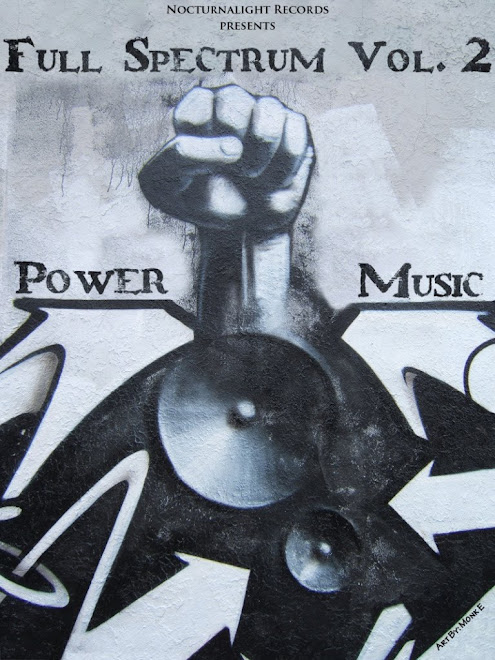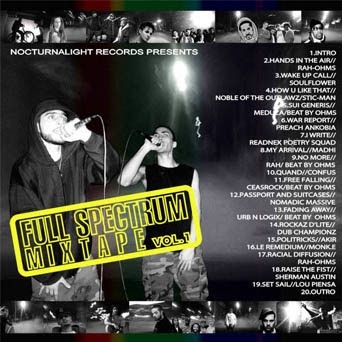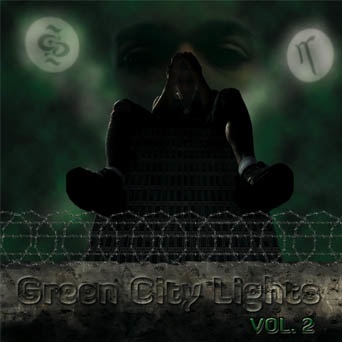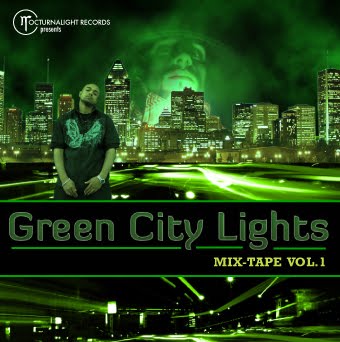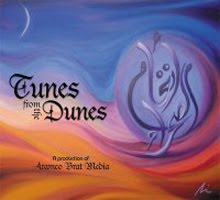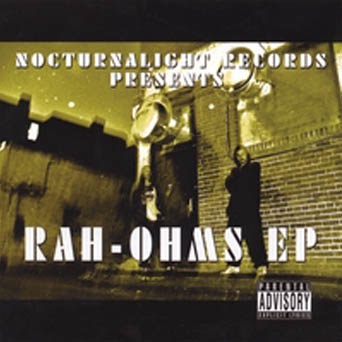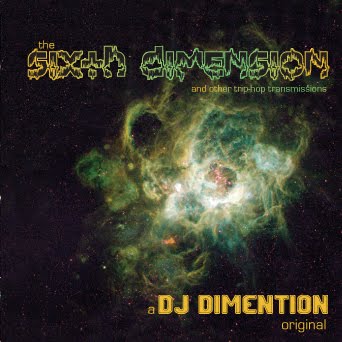So here's an interview done by a real chill bretheren named Jason, . We spent about an hour on Skype talking bout the do's and dont's in Hip Hop. Where Hip Hop came from and where its heading and a load of otherr interesting views facts and opinions. This interview is based on our Latest mixtape, Full Spectrum Vol.2 -Power Music.................... Read away
Rah Zemos – Old to the New
Ra – Egyptian Sun God, progenitor of eleven Pharoahs bearing his name: Ramses, born of the Sun God.
Baron Zemo – B-list Marvel Comics supervillain who showed briefly in the ‘60s to taunt Captain America, then killed off a year after his introduction.
Ramzi Mokdad – Ram-Zi, Rah Z, Rah Zemos – has an antipodal rap alias, marrying noble ambitions with a supervillain alter ego. He tells me he’s “Raw material, a king – somebody who’s a leader, not a follower.” But his name hints of aspirations to artistic complication: “I have my pure and righteous side, but we all have that alter ego… that darker side.”
As I listen to him talk on hip-hop, I wonder where that diabolical side rests: Rah’s purist agenda seems ingenuously straightforward. He founded an independent record label, Nocturnalight, in 2004 to “shin[e] the light where it’s darkest” and, when asked to clarify, he identifies hip-hop culture’s drifting from its foundation as the root cause of that darkness: “Selling out to the music industry, calling women bitches, all about drugs… B-boys, DJ’s, MC’s, graffiti. Rarely do you see these elements used in popular music…. they sold out. They didn’t stick to the roots of what hip-hop was all about.”
Our discussion reminds me of the early-2000’s, when the progressive zeitgeist of indie hip-hop was less Drake and Kid CuDi and more a bunch of dudes standing around in hoodies and non-designer jeans, talking about bringing the underground back. “Conscious rap”. Then, labels’ independence – Rawkus, Rhymesayers, Anticon, Def Jux – was touted by purists as a clear philosophical choice (Def Jux’s slogan: “Independent as Fuck”), and hip-hop heads seemed more vocal about bringing rap “back to its roots” than rationalizing the latest regional trend (remember crunk?).
But in 2010, nearly a decade removed from the turn-of-the-century scene, Jay Electronica (buddy-buddy to Rawkus mainstays Mos Def and Talib Kweli) stops by Youtube to big up Soulja Boy, and one-time major label soldier Freeway drops an album on Rhymesayers, with a guest appearance from Cash Money boss Baby. Jay-Z opens the Glastonbury festival backed by DJ Neil Armstrong, and Kanye West’s concert show looks more Cirque du Soleil than Rock Steady Crew.
Is this cultural drift – and is it negative? Rah would say so – “if I go to a show, and there’s a DJ and an emcee, some B-boys and a graffiti artist, that’s the most hip-hop show you’re ever going to go to…. if you don’t have all the elements of the culture, you’re not maximizing the potential of what your culture is.”
Rah has the experience to back up his aggressive cultural rhetoric: born to Lebanese parents on vacation in LA and raised in Saudi Arabia, he attended high school in Quebec, spending his adult life in New York and Toronto. He knows exactly what his Arab heritage brings him – “We’re the ones who are targeted, they’re watching what we’re up to – we’re the new minority… being an Arab and a lyricist is a big thing for me, the music’s big to me, because it’s my way to talk about these things.”
Rah embraces his distinct heritage, despite the persecution it can bring, and I wonder if this factors into his disdain for sell-outs – “they’re scared to really be themselves… That’s why Public Enemy said, don’t believe the hype…. When you put enough hype behind something, you could put out the worst product in the world and people will say, ‘wow, yeah, it’s pretty tight.’” When asked about who he does respect in the industry, he pauses for a long moment before throwing out KRS-One – “kept it real to the point where he hasn’t let the dark side corrupt him” – and, after prompting, Killah Priest, both not just for their cultural authenticity but also the positivity of their messages.
Positivity is a word that Rah often returns to – beyond artistic content, it’s his guiding principle: “My overall goal is to be as best a teacher and role model I can for our youth and adults alike.” His critique of artists who drift too far from hip-hop’s foundation is grounded in how he defines that foundation: “it’s all about positive and negative. Are you going to do something that has a positive impact, or negative?” Rah leaves no room in hip-hop for technical excellence without morality: either you are a fake or, worse, a sellout; or you are helping the audience towards unity and positivity.
Show and Prove is important in hip-hop – if you want respect, you have to earn it – and if Rah is outspoken in his criticism of other figures, at least he backs it up in his day-to-day grind. Ramzi Mokdad hustles 9-to-5 in the nonprofit world, with an outfit called Plan Canada, a sponsorship organization providing youths in underprivileged communities with food, medical care, and education. Nocturnalight Records is also active in bringing awareness of social issues to the forefront, organizing designers, artists, graffiti writers, and producers to hold workshops and get involved with the youth.
But how’s the music? On paper, Rah could come off as preachy and heavy-handed – and as much as he brings to mind the early-2000s Rawkus camp, there are good reasons that Rawkus’ presence on the scene faded around 2004, bought out by larger labels. And the best of intentions – saving the youth, bringing positivity to the hood – can be overshadowed by wack beats, stiff [||] rhymes, and an awkward flow.
Rah’s latest project is Volume 2 of his Full Spectrum mixtape series, released through Nocturnalight Records. While he generally shies away from associating himself with too many other artists, Rah does embrace a small circle of emcees on this project, and it’s obvious from the start that he respects them highly – the album intro finds Rah spitting, weaving the names and track titles of the other rappers together into a 2-minute track. A lot of mixtapes these days can feel thrown-together, with artists phoning in verses separately from one another and a DJ sequencing a passionless project together – but Rah notes, “More than separate artists, I wanted this to reflect a collective movement… these artists, I did the research on them, they’re handpicked, I felt they’d collaborate well together.” More than a promotional project, the Full Spectrum tape is supposed to be a “personal, mental, spiritual collaboration” – not just about demonstrating skill, but about showing off likeminded personalities.
The vibe of the whole tape is what I expected, given Rah’s background and passion for the fundamentals of hip-hop. The emcees he’s gathered together complement one another well – and, given the milieu of his adopted country and his diverse background, it’s not a surprise when emcees spit in a dizzying array of English, French, and Arabic. This fits in with his explicit aim for the project – when asked about the title of the tape, he responds, “It’s a tropical mix, a multicultural mix of emcees from all over the place – different backgrounds, different types of music, but all with a unified purpose. All their music is good – it’s proactive, it’s productive. So the full spectrum is kind of like the full spectrum of light, but also of cultures, religions, and races. So the Full Spectrum mixtapes are gonna feature different artists from all over the world. On this volume, we have 13 different cities and 4 different continents, 20 different artists.”
The overall effort has a distinct air of throwback rap, but the diversity of languages and cultures represented, along with solid production, make it the kind of album I wouldn’t mind walking down the street with in a chill autumnal twilight, or on an otherwise drowsy plane ride. It’s not a revolutionary album – but I don’t think it’s supposed to be. After all, his rhetoric is that of a hip-hop fundamentalist. So, maybe the best compliment that I can pay Rah’s music is that it is evolutionary: taking the substance of hip-hop’s golden era and bringing it one step forward. It’s not a game-changing record, but a solid, diverse, mature project. This might not be the brand of hip-hop that sets sales charts on fire, but the fact that emcees like Rah and the other Full Spectrum artists are still making music like this, over 30 years after the birth of hip-hop, may be the best compliment to the culture’s foundations.
You can download music and read more about Rah Zemos and Nocturnalight Records at Nocturnalight.com or at his blog.
https://blogger.googleusercontent.com/img/b/R29vZ2xl/AVvXsEgv6hlSo7ylL4cPCjdjqeszduE-XdGFlIyGlqF7aQcWA1xaIFTxDlScTXOOjQcq3lXDZIl397IWMJyGsPPPrfYQ7xHYwkqPf4qXKl42vHKAyO9DFsD0z_OQoMsg2OCafCjrHxlZHSc7hL2f/s660/originalfullspecvol2editedfront.jpg
Saturday, March 13, 2010
Subscribe to:
Posts (Atom)



